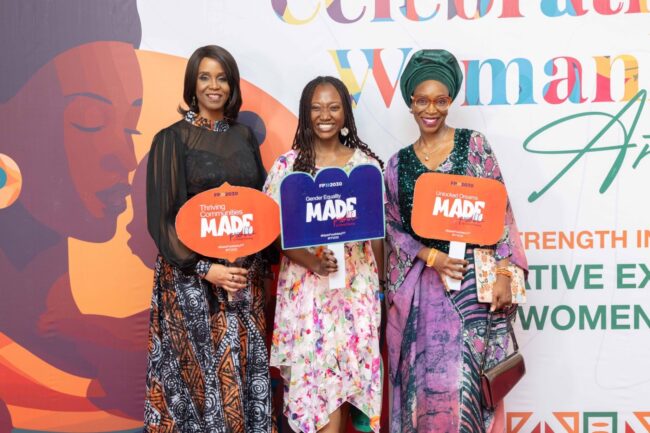The Federal Government and stakeholders in Nigeria’s healthcare sector are pushing for improved maternal healthcare services as part of a broader effort to reduce maternal mortality rates and promote better health outcomes for women and children.
They made the call at the third edition of the Celebrating Womanhood Art Gala, organised by Nigerian Health Watch in collaboration with the National Gallery of Arts and MSD for Mothers, themed “Her Strength in Every Story: Creative Expressions for Women’s Health.”
The Director of Educational Services at the National Gallery of Art (NGA), Janefrances Gbujie, who represented the Director General, Ahmed Bashir Sodangi, highlighted the link between art and healthcare, noting that “art-based interventions during pregnancy and postpartum periods positively impact maternal health and well-being.”
Gbujie also explained that the NGA had utilised various programmes and activities to promote art as a tool for social advocacy, including national visual art competitions and talent hunts.
“The organisation has also partnered with Nigerian Health Watch to support the promotion of art as a veritable tool for social advocacy.”
She explained that art-based interventions during pregnancy and the postpartum period positively impacted maternal health by providing emotional expression, social connection, and stress reduction, potentially improving mental health outcomes.
She said, “The impressive array of artworks displayed in this hall showcases not only the enduring spirit of Nigeria’s creative industry but also reveals the power of art in raising awareness and driving social change.”
Wife of the former governor of Kebbi State, Zainab Bagudu, also spoke on the impact of art in raising awareness about women’s health.
She commended the gala for empowering women whose artworks were featured and encouraged others to include women’s empowerment in their programmes.
Also speaking, the Director of MSD for Mothers, Nigeria and Kenya, Iyadunni Olubode, reiterated the importance of women’s health, adding that women were key contributors to the economy both in Nigeria and globally.
Olubode noted that providing women with access to healthcare enhanced the overall health and well-being of the family, as women served as the primary health caretakers in the household.
She said, “It’s the women that are encouraging and ensuring that the men take their medicines, remember the immunisation dates, and take the children for immunisations.
“This serves as an opportunity to not only enhance women’s health through family planning but also to improve the health and well-being of her entire family.”
Earlier in her welcome address, the Managing Director of Nigerian Health Watch, Vivianne Ihekweazu, while calling for improved action to enhance maternal health in Nigeria, raised concerns that maternal health impacted families, communities, and nations, yet disparities in maternal health outcomes, particularly in countries such as Nigeria, remained alarmingly high.
She lamented that Nigeria continues to record one of the highest maternal mortality rates (MMR) globally, with more than 1,000 maternal deaths for every 100,000 live births.
This, she said, was far from the UN Sustainable Development Goal to reduce the global MMR to below 70 deaths per 100,000 live births by 2030.
“This stark reality is a reminder of the work that remains to be done to ensure every woman has access to the care she needs to survive pregnancy and childbirth.”
She explained that the gala was an opportunity to find creative ways to ensure that women were heard, respected, and empowered to advocate for their health and well-being.
ALSO READ: Emergency rule: Tinubu saves Rivers from looming dangers — Ex-minister
“But this evening is not about despair; it is about action. It is about recognising the immense strength that women have always carried and continue to carry, not only in their families and communities but in the very institutions that shape our society.
“It is about finding creative ways to ensure that these women are heard, respected, and empowered to advocate for their own health and well-being.”
Reflecting on the role of women in pre-colonial African societies, Ihekweazu noted that they were not passive figures but active agents in shaping their societies.
“As we reflect on the theme of this event, Her Strength in Every Story, we must acknowledge the history that has shaped this strength.
“In her book Female Monarchs and Merchant Queens in Africa, renowned historian Nwando Achebe offers a profound insight into the roles that women played in pre-colonial African societies.
“Women like Queen Amina of Zazzau did not simply exist within the boundaries set by others. They ruled, they led, and they made decisions that impacted entire communities. These women warriors, rulers, and entrepreneurs held immense power in both the spiritual and physical realms.
“They were not passive figures; they were active agents in shaping their societies, advocating for the needs of their people, and ensuring that their voices were central to decision-making processes,” she said.
ALSO READ TOP STORIES FROM NIGERIAN TRIBUNE
